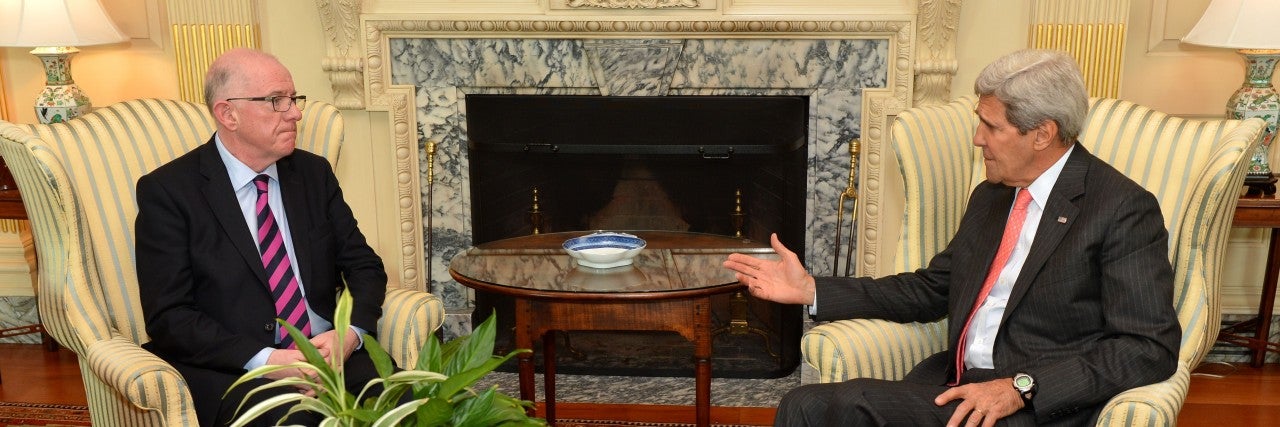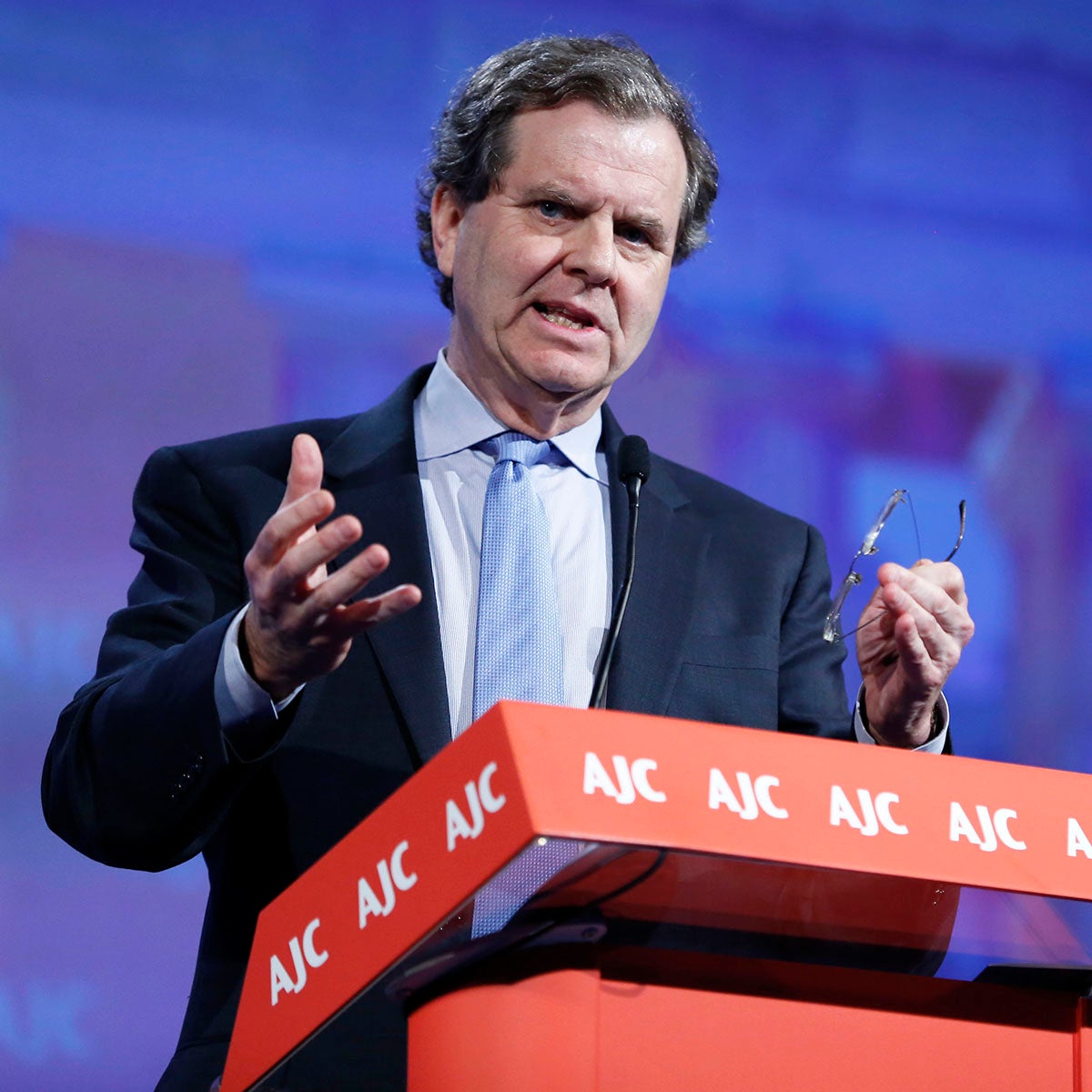February 12, 2017
Recently, you said: “I am actively keeping under consideration, on a continuous basis, the question of whether recognition by Ireland in the near future of a state of Palestine might be a helpful step in relation to the Middle East peace process.”
As a long-time proponent of the Israeli-Palestinian peace process and the search for a viable two-state agreement, I urge you not to do so.
I fully realize that Ireland, despite a fairly strong bilateral relationship with Israel, has been one of the Palestinians’ strongest advocates in the European Union, generally aligning itself with those member nations most critical of the Jewish state.
And I am aware—having heard it directly from Irish diplomats—that Ireland tends to superimpose its own political situation, i.e., the relationship between the Republic of Ireland and Northern Island, on the Israeli-Palestinian conflict, viewing Israel as the “British” and the Palestinians as the “Irish.”
Apart from the fact that the two issues are not analogous – unlike Israel’s precarious situation, the very existence of Ireland is not at stake, nor is its right to exist questioned – a decision to recognize Palestinian statehood outside the framework of a negotiated deal between the parties themselves could do real damage to the cause you profess to champion.
You state that you wish to help advance the (misnamed) "Middle East peace process" – misnamed, of course, because it is, strictly speaking, the Israeli-Palestinian peace process, nothing more, nothing less.
The generic name has given rise to the belief that solving the Israeli-Palestinian conflict is the key to ushering in a peaceful new era in the wider region. That illusion should have been shattered long ago, and certainly since the advent of the “Arab Spring,” when the root causes of Middle East conflict, instability, and convulsions were revealed for all to see.
The “freedom deficit,” “gender deficit,” and “knowledge deficit,” all cited as endemic in the Arab world by the UN-sponsored Arab Human Development Report, won’t be solved by an Israeli-Palestinian accord, any more than the barbarism in Syria, the Iranian power play in the region, the Sunni-Shiite faceoff, or failing states from Libya to Yemen.
That aside, what is to be gained by Irish unilateral recognition of Palestinian statehood?
Will it actually increase the chances of bringing the parties back to the negotiating table and hammering out a final settlement? To the contrary, it is far more likely to make it still more difficult, setting back the very goal you seek.
Once again, as when Sweden did the same thing in 2014, the Palestinians would be given a political gift they did not earn. They would get full recognition from a respected member of the international community, while their president serves the 12th year of his four-year term, there is no provision for peaceful succession, the entity he allegedly presides over is divided between two irreconcilable areas (West Bank and Gaza), he remains AWOL from face-to-face peace talks, and he resorts to incitement and glorification of “martyrdom” against Israel.
Surely, Ireland can play a more constructive role by acknowledging and addressing these issues, which are not peripheral to any peace process, but rather at its core. Helping the Palestinians understand that to become a sovereign state one day they have to behave more responsibly now, could mark a major contribution to creating fertile ground for a future deal.
Furthermore, it is no secret that should Ireland nonetheless move ahead with unilateral recognition, it would likely strengthen those forces in Israel that assert the international community can’t be trusted to take a balanced approach, but is rather eager to isolate Israel for the sake of Palestinian “solidarity.” That ought to be a diplomatic non-starter for any fair-minded nation interested in pursuing peaceful conflict resolution.
And finally, as a lifelong friend of Europe, allow me a respectful suggestion. Perhaps more of your diplomatic energy might be spent closer to home.
Ireland won’t solve any of the conflicts in the Middle East, but, as an EU member state, it has a critical role to play in dealing with the future direction of the continent – and for those who care deeply about that future, and worry it is no longer as assured as it once seemed, Europe needs all the enlightened help it can get.
Wherever one turns, challenges abound – Brexit and wider Euro-skepticism; populist, xenophobic parties that threaten the existing order; Russia’s aggressive initiatives to divide Europe against itself; Russian intervention in Crimea, eastern Ukraine, Abkhazia, South Ossetia, and Transnistria; the future of immigration, integration, and identity in Europe; and economic lethargy and ominously high youth unemployment rates in some EU countries.
Minister Flanagan, let me assure you that Israel and its friends around the world want lasting peace no less than you do, and they stand to benefit from its arrival more than anyone else on the planet. The issue, though, is not the desire. That’s always been there. Rather, it’s translating it into reality, which, given Palestinian intransigence, has proved elusive since Israel's rebirth in 1948.
And, finally, please remember, Mr. Minister, that as peoples with long histories, the Irish and the Jews have something very much in common. It was captured by the legendary poet William Butler Yeats. “Being Irish,” he wrote, “he had an abiding sense of tragedy, which sustained him through temporary periods of joy.” Yeats could just as easily have been writing about Jews and the way we see the world!
This article was originally published on The Huffington Post and The Times of Israel.



